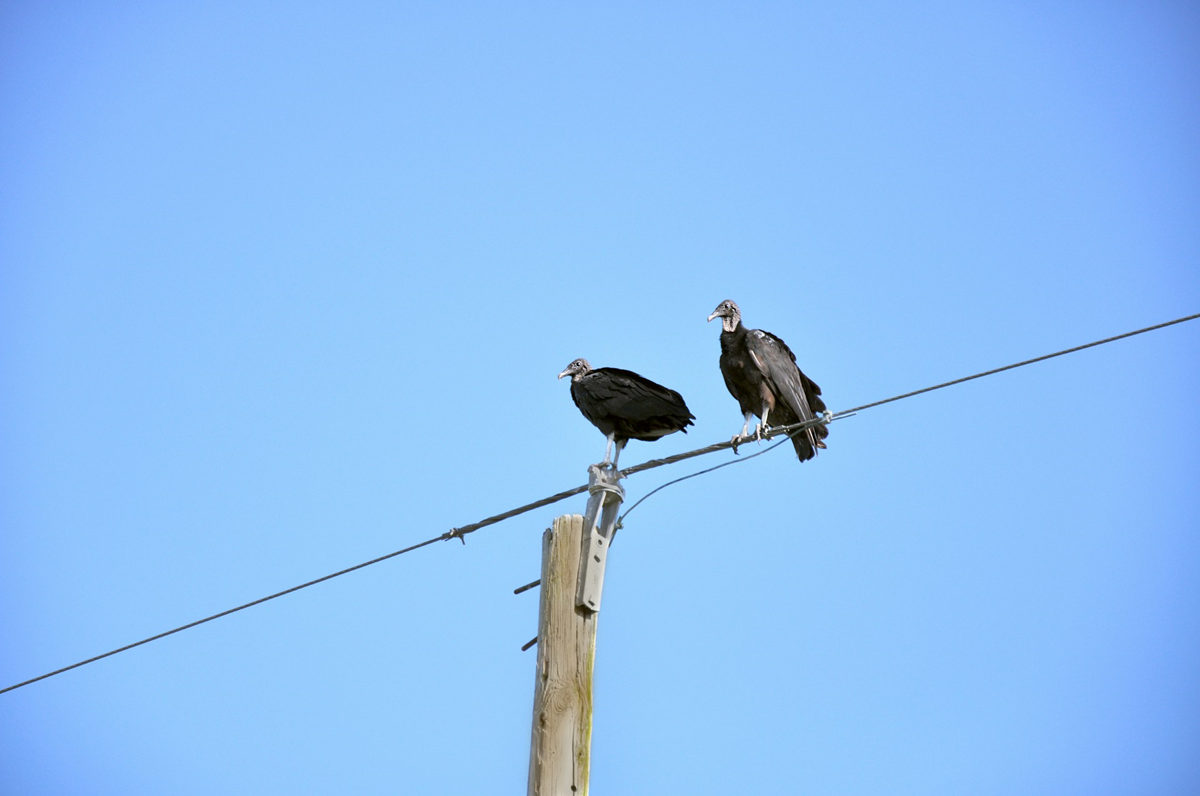
Vultures provoke mixed feelings from people throughout the world. While many see the birds as harbingers of death, others welcome them and celebrate their appearance. In nature, vultures are opportunistic carrion feeders that will sometimes prey on small livestock such as newborn calves, lambs, and piglets. As human habitations encroach upon the birds’ wild habitats, vultures quickly learn to adapt to residential settings and often become unwanted nuisance pests.
Find Service in your Area:
Get them out.
Keep them out.®
Experiencing a wildlife or pest issue? We can help! Complete this form and your local Critter Control® office will contact you to assist.
The two most common species in the United States, the turkey and black vultures, are large birds with wingspans reaching up to 5 or 6 feet across. Both species have dark brown or black feathers and bald heads. Turkey vultures, the larger of the two species, have red heads, while those of black vultures are dark gray or black. Their feet are better adapted to running than grasping prey and their large, powerful beaks allow them to tear apart carcasses.
Intelligent birds capable of eating almost anything, vultures adapt to living in nearly every type of environment. They prefer to soar above wide open fields, using their keen eyesight and strong sense of smell to spot promising meals on the ground below. Instead of building nests, vultures tend to lay their eggs in secluded, sheltered areas such as thickets of tall grass, hollow logs, and unoccupied buildings. In places where vultures live in residential areas, they scavenge through unattended garbage and roost on shade trees or the roofs of tall buildings.
Are vultures known to enter homes or yards?
Vultures enter abandoned or unoccupied buildings in search of roosting spots and sheltered locations to lay their eggs. However, they have no reason to enter occupied dwellings. The birds are more commonly encountered in yards or fields where deceased animals or unprotected newborn livestock are present. Garbage dumps, farms, and marinas also attract vultures with available food.
Do vultures harm people or property?
Farmers and ranchers must keep a close eye on livestock when vultures are in the area. Sick, injured, or newly born animals are at the highest risk of attack. The birds have been known to pluck the eyes from the sockets of newborn lambs, disembowel vulnerable young calves, and claw or peck deep gashes and wounds in other small animals. When large populations of vultures roost in residential settings, their droppings cause problems. Vulture feces are odorous, contaminate water supplies, and damage property. The birds do not typically attack humans.
Since vultures go wherever food sources are present, populations of the bird can be controlled by promptly disposing of deceased animals. Placing trash in sealed containers also removes a significant source of food. Further action may include tearing down trees that serve as roosting sites, putting up bird spikes or double-sided tape on the ledges and roofs of buildings, and mowing thickets of grass.
Turkey vultures and black vultures are federally protected species under the Migratory Bird Treaty Act, and cannot be trapped, removed, or killed without a license. As such, residents who experience vulture problems should contact wildlife professionals to deal with the situation.